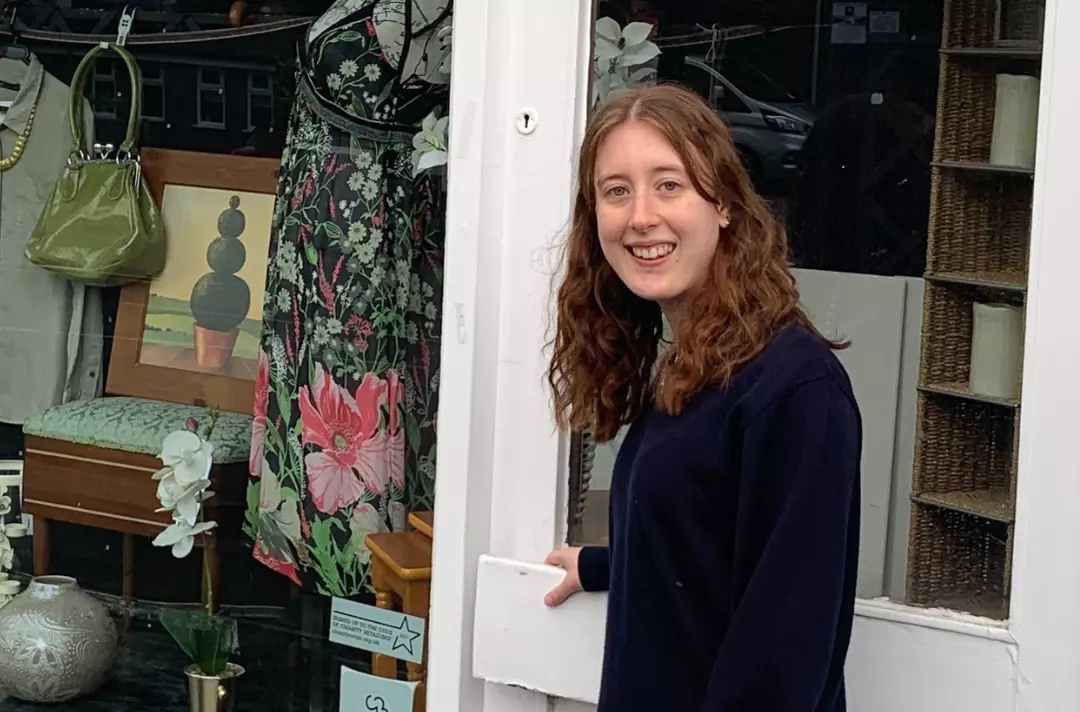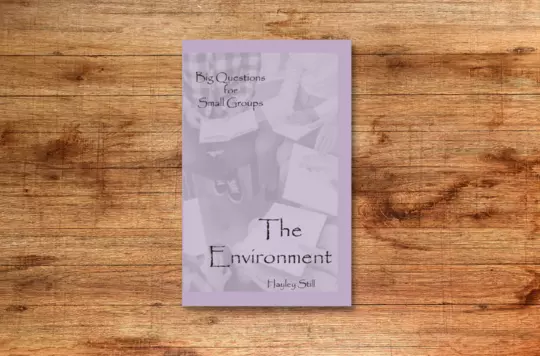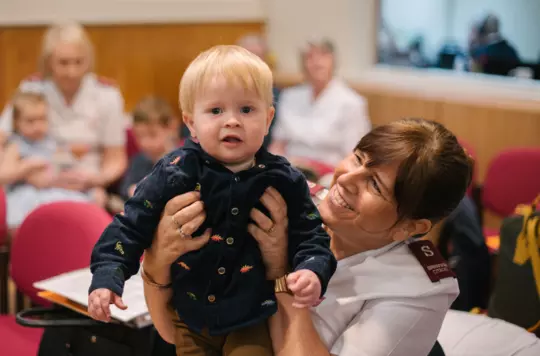16 May 2022
My seven tips for caring for creation
Yelena Grase Jurkenas

University student Yelena Grase Jurkenas reflects on God’s invitation to care for creation and shares seven eco-friendly habits.
Caring for creation.
The task sounds impossible, doesn’t it? However, if you start small and take it step by step, you may find that the foundations for it are already in place and that all we have to do is to build on them.
When we look at the Bible, we see God encouraging us to care for creation.
In Genesis, God outlines that humans were created to ‘be responsible for fish in the sea and birds in the air, for every living thing that moves on the face of Earth’ (1:28 The Message) – he invites us to share in the responsibility of conserving the world.
I have got into the practice of putting on my ‘planet goggles’. When I have them on, life looks a lot more reflective and conscientious. They encourage me to be more resourceful as I appreciate creation for what it is. They challenge me to re-evaluate everything - seeing waste as useful, and new as rare - and help me learn to continually repurpose things.
I try to care for creation by challenging myself to do these seven things:
1. Shop only when I need to
This means that before I buy anything, whether that be a piece of clothing or food or furniture, I aim to step back and consider how much I need this item and what I will use it for.
2. Buy second-hand
Most of my clothes are now bought second-hand from charity shops, as are most of my uni items, including my crockery.
However, I do still buy some items new, especially if they are durable, for sometimes that means they last longer and I, in turn, will waste less.

3. Buy cruelty-free products
This is becoming easier, as more and more cosmetic brands are investing in cruelty-free production processes. I check the backs of bottles or tubs for a cruelty-free logo.
4. Be more conscientious with food
We’re told a plant-based diet can benefit the environment and, for me, this was quite an easy adjustment because I have never been a big meat or dairy lover. But it is not always practical.
Focusing on eating consciously, however, I find is more achievable. It can involve:
- Raiding the reduced section at the supermarket. I am always surprised by what I find and by how some products can last much longer than the dates on their packaging suggest.
- Challenging myself to be on the lookout for ways to save waste from food. Did you know that boiling and simmering veg peelings can make an excellent stock?
- Having meat-free days.
5. Repurpose clothes and household items
I have a sewing machine that I enjoy using to repurpose old clothes and material. I also embroider over holes in clothes to make them last longer.

It can be very therapeutic to try and save items from the bin. I would recommend checking out Money for Nothing or The Great British Sewing Bee on BBC One for inspiration!
6. Be aware of my carbon footprint
This serves as my motivation to fly less and use public transport more. It has also inspired me to invest in a bike and walk more often.
7. Switch off energy sources when not in use
I aim to switch off lights when I leave a room and I have grown my jumper collection to save me putting on heating - handy when energy prices are rising.
‘We need to treat the Earth with kindness so it can reach its full potential’
When God invited us to care for his creation, he did not give us a license to do whatever we please with it. Instead, we have been given freedom to use the resources of the world to build more goodness in the present and to provide for future generations. Therefore, we need to treat the Earth with kindness so it can reach its full potential as we ‘Prosper! Reproduce! Fill Earth!’ (Genesis 1:28 MSG).
Salvation Story: Salvationist Handbook of Doctrine says:
‘God’s authority over the created order does not mean rigid and overbearing control but rather a caring, dynamic, interactive relationship with his creation. He works in co-operation with his creation to fulfil his purposes for it... Our challenge is to treat the earth well in the light of increasing population and diminishing resources. The world was made to praise God and reveal his glory (Psalm 19:1-6); our stewardship of it furthers that end.’
Reflecting on this now, I feel a great sense of honour that I was entrusted along with all of you to care for creation. Doesn’t that inspire you to do God proud? We have all the resources we need right before us to fulfil our potential, if only we would accept the challenge of care too.
I love the way the Message translation puts it in Genesis 1 with the frequent use of exclamation marks, emphasising the enthusiasm that should accompany all we do. It suggests that we should find joy in not just growing the human race but also caring for the creation which lives alongside it. Hence, taking care of God’s creation furthers our praise of God’s glory.
This joy can be found at a personal, church and community level.
Personally, I have been inspired by the way God calls us to love and care for others and how that love extends to creation. Preserving creation becomes an act of respect and thanks to previous generations and an expression of love for present and future generations.
Where do I start?
I would recommend starting small, putting on your planet goggles and appreciating how life with them on is more reflective and conscious. Gradually learn to be aware of every material you use, try to prevent waste, and choose more eco-friendly activities when you can. Challenge yourself to change one thing every month and soon caring for creation will seem possible, not impossible.
Caring for creation is the only way to reduce the effects of climate change and work together to preserve resources for future generations. It is God’s challenge to us.
So, put on those planet conscious goggles and go care for God’s creation out of freedom, joy, and love!
Written by

Yelena Grase Jurkenas
Addlestone
Discover more

The Salvation Army's International Positional Statement on Caring for the Environment.

Sign up to hold a climate-focused service and download resources to help you worship, pray and act together.

Hayley Still explores the biblical basis for caring about the environment and the role of the Church.
